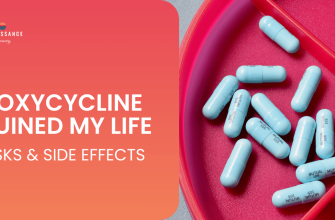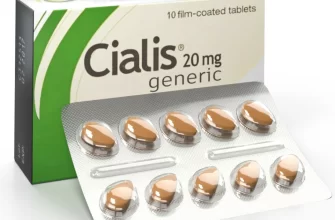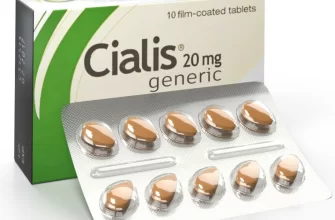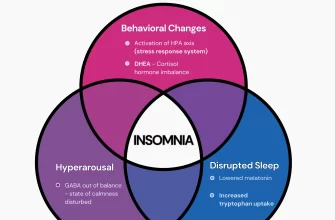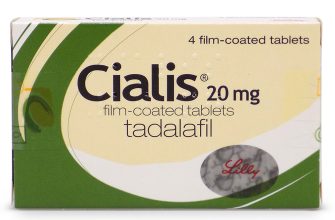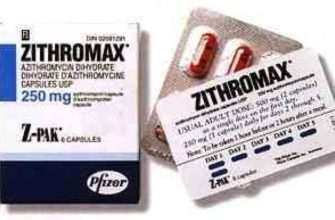Doxycycline offers a valuable option for malaria prevention, especially for travelers at high risk of exposure. Recommended primarily for adults and children over eight, this antibiotic can provide a significant benefit in regions where malaria is endemic, particularly where resistance to other medications exists.
Taking Doxycycline daily during your stay in a malaria-prone area and for 4 weeks post-departure is crucial. This regimen aims to ensure maximum protection against infection. Health authorities suggest starting Doxycycline at least 1-2 days before entering these regions to achieve optimal blood levels of the drug. Discussing dosage with a healthcare provider guarantees personalized guidance tailored to individual health needs.
Besides its preventive capabilities, Doxycycline also helps combat other bacterial infections, making it a practical choice for travelers. Although generally well-tolerated, potential side effects may occur, including sun sensitivity and gastrointestinal discomfort. Staying well-hydrated and protected from sun exposure while using this medication is advisable.
Combining Doxycycline with other preventive measures, such as insect repellents and bed nets, enhances overall safety. By maintaining vigilance and adhering to medical advice, you can significantly reduce the risk of malaria while enjoying your travels.
- Doxycycline for the Prevention of Malaria
- Understanding Malaria and Its Risks
- How Doxycycline Works Against Malaria
- Mechanism of Action
- Dosage and Administration
- Dosage Recommendations for Doxycycline in Malaria Prevention
- Administration Guidelines
- Special Considerations
- Potential Side Effects and Contraindications of Doxycycline
- Contraindications
- Precautions
- Comparative Effectiveness of Doxycycline vs. Other Malaria Medications
Doxycycline for the Prevention of Malaria
Doxycycline is a recommended medication for malaria prevention when traveling to areas where the disease is endemic. Take 100 mg of doxycycline daily, starting one to two days before entering the malaria-risk zone. Continue the dosage for the entire duration of your stay and for four weeks after leaving the area.
This antibiotic targets specific malaria strains and is particularly effective against Plasmodium falciparum, which is responsible for the most severe cases. Doxycycline also provides additional protection against certain bacterial infections, enhancing its value as a travel medication.
Ensure you take doxycycline with a full glass of water to minimize the risk of esophageal irritation. Taking it with food can also reduce gastrointestinal side effects, which may include nausea and diarrhea. Adjustments in dosage may be necessary for individuals with certain medical conditions, so consulting a healthcare provider beforehand is advisable.
Common side effects include sensitivity to sunlight; therefore, using sunscreen and protective clothing is recommended. Avoid taking doxycycline with milk or calcium supplements, as these may decrease its absorption and effectiveness.
Always verify malaria risk in your destination and discuss preventative options with a healthcare professional to ensure the most suitable measures for your health and travel plans.
Understanding Malaria and Its Risks
Malaria poses a significant health risk in many tropical and subtropical regions. Knowing its transmission, symptoms, and preventive measures helps in reducing the chances of infection.
Malaria is caused by Plasmodium parasites, transmitted through the bites of infected Anopheles mosquitoes. Awareness of high-risk areas is vital. Here are key regions where malaria is prevalent:
- Sub-Saharan Africa
- Parts of South Asia
- Parts of Central and South America
- Some areas in the Middle East
Understanding the symptoms enables prompt action. Common signs include:
- Fever and chills
- Headache
- Nausea and vomiting
- Malaise and fatigue
If not treated quickly, malaria can lead to severe complications, including anemia, respiratory distress, and organ failure. Regular monitoring and seeking medical attention are critical for those exhibiting symptoms.
Prevention remains the best strategy against malaria. Here’s how to minimize risks:
- Use insect repellent with DEET on exposed skin.
- Sleep under mosquito nets, preferably insecticide-treated.
- Wear long sleeves and pants, especially during peak mosquito activity at dusk and dawn.
- Consider prophylactic medications like Doxycycline when traveling to endemic areas.
Realizing these risks and applying preventive measures can significantly lower the likelihood of contracting malaria. Stay informed and take proactive steps to protect your health.
How Doxycycline Works Against Malaria
Doxycycline effectively prevents malaria by targeting the Plasmodium parasites. This antibiotic disrupts protein synthesis, which is crucial for the growth and reproduction of these parasites within the human body.
Mechanism of Action
The primary action of doxycycline involves binding to the 30S ribosomal subunit of the Plasmodium species, inhibiting the translation of mRNA into proteins. This disruption hinders the parasite’s ability to produce essential proteins required for its survival and replication. As a result, the parasite’s growth is slowed, allowing the immune system more time to mount an effective defense.
Dosage and Administration
For malaria prevention, doxycycline is typically taken daily, starting 1–2 days before potential exposure and continuing for 4 weeks after leaving the area where malaria is endemic. This regimen ensures that sufficient levels of the drug are present in the bloodstream to fend off any incoming parasites. It’s crucial to adhere to the prescribed dosage to maintain the optimal antiparasitic effect.
In addition to its role in malaria prevention, doxycycline also offers advantages such as good oral bioavailability and tolerability. These factors contribute to its popularity as a choice for travelers and individuals living in malaria-prone regions.
Always consult a healthcare provider before starting doxycycline for malaria prevention to confirm its suitability based on personal health conditions and potential drug interactions.
Dosage Recommendations for Doxycycline in Malaria Prevention
The recommended dosage of doxycycline for malaria prevention is 100 mg taken daily. Begin taking the medication at least 1 to 2 days before entering a malaria-risk area. Continue the daily dose while in the area and for up to 4 weeks after leaving.
Administration Guidelines
To enhance absorption and minimize gastrointestinal discomfort, take doxycycline with a full glass of water. Consuming it with food can also help. Avoid lying down for at least 30 minutes after taking the medication to reduce the risk of esophageal irritation.
Special Considerations
Patients should consider individual health factors. For those with kidney issues, it’s important to consult a healthcare professional before use. Pregnant or breastfeeding individuals should also seek medical advice. Monitor for any allergic reactions or side effects, and report them to a healthcare provider immediately.
| Population Group | Dosage | Duration |
|---|---|---|
| Adults | 100 mg daily | 1-2 days before travel, during travel, and up to 4 weeks after |
| Children (8 years and older) | 100 mg daily | 1-2 days before travel, during travel, and up to 4 weeks after |
| Pregnant Women | Consult healthcare provider | Consult healthcare provider |
Potential Side Effects and Contraindications of Doxycycline
Doxycycline may cause side effects that range from mild to severe. Common side effects include gastrointestinal disturbances like nausea and diarrhea, effective management often involves taking the medication with food. Skin sensitivity to sunlight is another concern; using sunscreen and protective clothing minimizes this risk. Some individuals may experience allergic reactions, characterized by hives, swelling, or difficulty breathing. In such cases, seek medical attention immediately.
Contraindications
Individuals should avoid doxycycline if they have a known allergy to tetracyclines. Pregnant women and breastfeeding mothers also must refrain from using this medication, as it can affect fetal development and breast milk composition. Children under the age of eight are at risk for permanent tooth discoloration and should not take doxycycline. Additionally, those with liver disease or certain autoimmune conditions should consult their healthcare provider before starting therapy.
Precautions
It’s advisable to inform your doctor about any existing medical conditions and current medications to prevent adverse interactions. Drinking adequate fluids during treatment helps avoid esophageal irritation, a potential side effect. Monitoring progress and communicating any unusual symptoms with a healthcare professional enhances safety while using doxycycline.
Comparative Effectiveness of Doxycycline vs. Other Malaria Medications
Doxycycline demonstrates a strong profile in malaria prevention, particularly in regions where Plasmodium falciparum is prevalent. Compared to alternatives like Atovaquone-Proguanil and Mefloquine, Doxycycline shows similar efficacy in preventing malaria infections. Clinical studies indicate that Doxycycline has a protective efficacy of around 90% when taken before and during travel to endemic areas.
Atovaquone-Proguanil offers a daily regimen with a significant protection rate, making it convenient for travelers. However, Doxycycline’s broader antimicrobial properties can provide additional benefits against infections such as Rickettsia and certain respiratory pathogens, whereas the primary focus of Atovaquone-Proguanil is malaria. This can be a valuable consideration for travelers exposed to diverse health risks.
Mefloquine has been effective but carries a higher risk of neuropsychiatric side effects, which can deter some users. Doxycycline typically has a milder side effect profile, with gastrointestinal disturbances being the most common, often manageable with food intake. This makes it a preferable option for many individuals at risk of malaria.
Resistance patterns may also influence choice. Doxycycline is less affected by resistance mechanisms commonly seen with alternatives like Mefloquine, giving it a reliable edge in specific areas. Travelers should also consider individual health history, as contraindications with existing conditions can vary among these medications.
Cost-effectiveness is another advantage of Doxycycline, as it is often more affordable and widely available than some alternatives. This accessibility allows for easier adherence and better outcomes in malaria-prevention strategies.
For effective malaria prevention, evaluate personal health factors, travel plans, and local malaria resistance. Doxycycline stands as a strong candidate, balancing efficacy, safety, and cost, making it an excellent choice in many scenarios.


